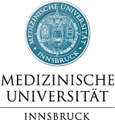Mittwoch, 11.10.2023
Botanisches Kolloquium: A synthesis on the ecology, biogeography and conservation impacts of biological invasions in the Anthropocene
17:00 - 18:00 Uhr
Institut für Botanik, Hörsaal A, Sternwartestraße 15, 6020 Innsbruck
Anmeldung ist nicht erforderlich
Eintritt / Kosten: Keine
Vortragende/r
Franz Essl
Scientist of the year 2022
Division of BioInvasions, Macroecology & Global Change, Department of Botany and Biodiversity Research, University Vienna
Weitere Informationen
Biological invasions have become a defining feature of global environmental change. However, the global patterns and underlying factors that determine variation in invasions world-wide are still insufficiently understood. Similarly, future trajectories of biological invasions and the consequences for biodiversity conservation are not fully appreciated.
Progress in data coverage and availability, supplemented by new tools for data integration and analyses have facilitated the compilation of comprehensive databases of world-wide alien species distributions such as GloNAF (https://glonaf.org/) for vascular plants (van Kleunen et al. 2015). Similarly, the compilation of the Alien Species First Record-database provides a backbone for analysing spatio-temporal patterns of alien plant species accumulation (Seebens et al. 2017). Further, data on human pressures, on the exchange routes of goods and people, and on a large range of environmental factors have increasingly become available. Combined, these novel data sources have substantially advanced the understanding of the (macro)ecology and biogeography of biological invasions, and they provide the foundation for exploring future trends of alien species spread and impacts.
In this talk, I will synthesize key insights into global patterns and drivers of biological invasions. I will highlight likely future consequences of invasions and discuss the human dimension in alien species spread and impacts. Finally, I will provide a perspective on priority questions for biodiversity conservation, society and science related to biological invasions.
References
Lenzner B et al. (2019) A framework for global 21st century scenarios and models of biological invasions. BioScience 69: 697-710.
Seebens H et al. (2017) No saturation of the global accumulation of alien species. Nature Communications, 9, 14435.
van Kleunen M et al. (2015) Global exchange and accumulation of non-native plants. Nature, 525, 100-103.
Veranstalter
Institut für Botanik

